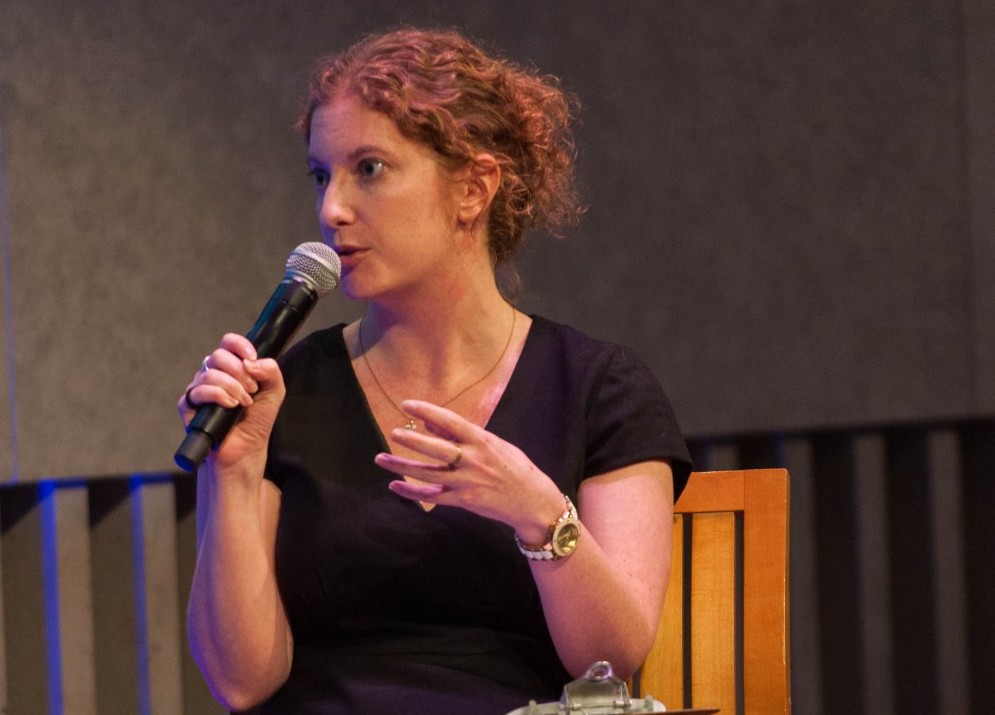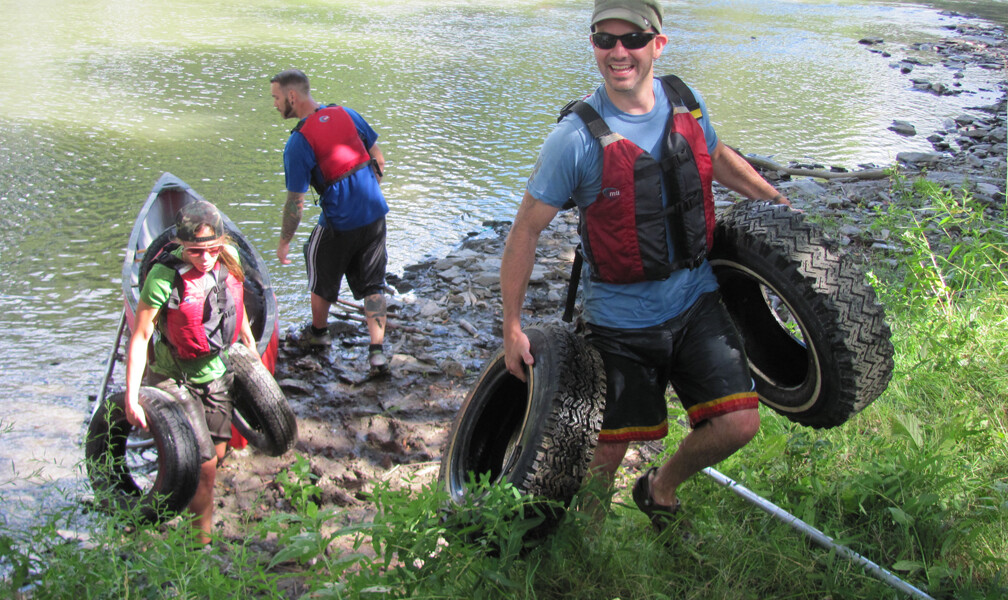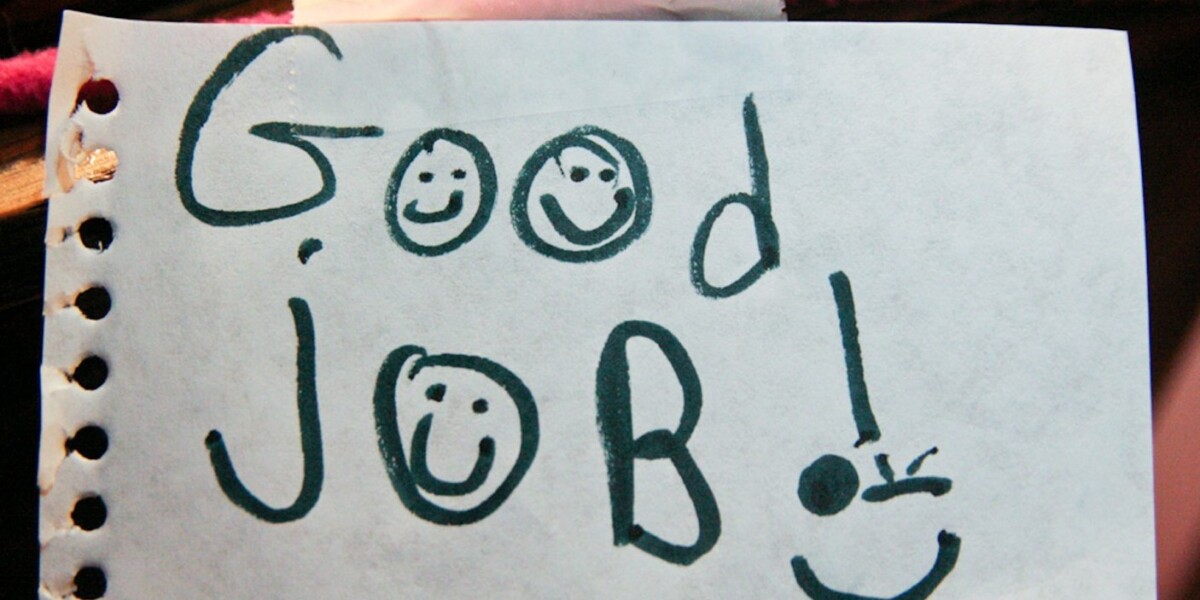Miranda Appelbaum ’04 is the Assistant Director of Accessibility and Guest Services at the Lincoln Center for the Performing Arts in New York. Her job focuses on programming, accommodations, staffing, and supporting new talent in the disability field.
We talked to Appelbaum, who earned degrees in English and anthropology from UVM before studying museum studies at New York University, about working in the performing arts and how UVM prepared her for a fulfilling career.
What does your job entail at Lincoln Center?
![]() I am responsible for making sure that the campus and programs are accessible for people with disabilities. I also manage a program that introduces children with disabilities and their families to the performing arts through programs with the New York City Ballet, the New York Philharmonic, and Jazz at Lincoln Center, among many other partners. In addition, Lincoln Center is launching new performance-based programs this spring for people with dementia and their caregivers, to align with a research study showing the impact of the arts on quality of life. We’ve also recently launched verbal description tours of Lincoln Center’s campus for people who are blind or have low vision.
I am responsible for making sure that the campus and programs are accessible for people with disabilities. I also manage a program that introduces children with disabilities and their families to the performing arts through programs with the New York City Ballet, the New York Philharmonic, and Jazz at Lincoln Center, among many other partners. In addition, Lincoln Center is launching new performance-based programs this spring for people with dementia and their caregivers, to align with a research study showing the impact of the arts on quality of life. We’ve also recently launched verbal description tours of Lincoln Center’s campus for people who are blind or have low vision.
Did you know early on that you wanted to work in museums?
I was lucky to grow up in the Berkshires, where there are lots of theaters, museums, and performances. Although I didn’t realize it then, museums provide such an incredible space for telling stories through objects and for building community. Those values really shaped my career.
I took a Cultural Anthropology course during my freshman year at UVM and fell in love with anthropology. After an internship at the Fleming Museum my senior year, and an archaeology dig field school in Peru, I knew I wanted to work with material culture and I wasn’t cut out for academic research. After graduation, I honed in on my interest in working in museums and moved to New York for graduate school.
How did your experience at UVM help prepare you for your career?
UVM had a huge impact on my career. Being introduced to material culture and anthropology, and seeing it applied both in a field school and in a museum setting, inspired my interest in museums. Burlington was also a rich place to hear live music, and that’s continued throughout my personal and—now at Lincoln Center—professional life.
As far as leadership skills, I was a resident assistant during my junior year, which was challenging but formative. That experience, and most of my classes, helped me figure out my role on teams, my communication skills, and my interests in working to build communities. I was also a teaching assistant for Cultural Anthropology and worked in UVM’s daycare—both of which were two very different teaching experiences.
How did you become interested in working in accessibility?
My first museum job after grad school was as the Education Coordinator at the Intrepid Sea, Air & Space Museum in New York. I worked with teachers to plan and lead school field trips. A member of our senior staff had a friend who was Deaf and was interested in offering a special tour in American Sign Language. As I prepared for the tour, I realized there were so many amazing things being done in accessibility at other museums, and we had a long way to go. I created a three-year plan to introduce new programs and services, and was fortunate to work within an incredibly supportive organization. Within my five years there, the museum created a whole team for accessibility, who deliver hundreds of specialized programs each year for students, individuals, and families with disabilities. The current staff is going far beyond anything I imagined.
What are the biggest challenges of your job?
As with most nonprofits, time and resources are challenging. Specifically, in the field of accessibility, so many amazing programs are happening all over the city. It’s challenging, knowing our limited resources, to choose what initiatives we move forward. Our projects are driven by need, and, unfortunately, so many populations in the disability community don’t have the same access to the arts as others. I’m constantly researching and vetting new ideas from colleagues and prioritizing our goals over time.
The greatest rewards?
One of the major motivators in my career is how I can help open up access, especially for people with disabilities and their families. I’ve gotten to know many of the families who have attended programs over the years and have seen such amazing social growth in children over time. It’s inspiring to know that our work has played a part.
Interested in taking a course in cultural anthropology or the arts? Register for a Summer U class at UVM.




